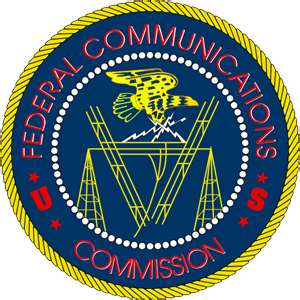 SANTA MONICA, CA – Consumer Watchdog today welcomed the demise of the Comcast -Time Warner Cable deal in the face of strong objections by federal regulators as a victory for consumers and the public interest group called on the Federal Communications Commission and Justice Department to block the pending merger of AT&T and DIRECTV.
SANTA MONICA, CA – Consumer Watchdog today welcomed the demise of the Comcast -Time Warner Cable deal in the face of strong objections by federal regulators as a victory for consumers and the public interest group called on the Federal Communications Commission and Justice Department to block the pending merger of AT&T and DIRECTV.
When the $45 billion Comcast -Time Warner Cable merger was announced a year ago, Consumer Watchdog told the regulators it should be blocked because it “violates antitrust laws and is not in the public interest.”
“The firm positions taken by both the FCC and Justice on Comcast are a victory for consumers,” said John M. Simpson, Consumer Watchdog’s Privacy Project director. “The consolidation of the largest cable television providers would have created a media juggernaut that stifled completion and hurt consumers.”
Read Consumer Watchdog’s formal comments to the FCC opposing the Comcast deal here: http://www.consumerwatchdog.org/resources/fcccomcastcomments082514.pdf
Consumer Watchdog said that the failure of the Comcast – Time Warner deal should similarly seal the fate of the AT&T DIRECTV proposal because that consolidation would give too much power over the market to the new behemoth.
“AT&T’s proposed $49 billion purchase of DIRECTV offers no substantial benefits to American consumers, and will lead to higher prices, less competition and an expansion of the notorious anti-consumer practices that DIRECTV currently imposes on its customers,” said Simpson. “The deal may be good for Wall Street fat cats, but AT&T has failed to demonstrate that the merger is in the public interest.”
In a recent letter to the FCC and Department of Justice about the AT&T – DIRECTV deal, Harvey Rosenfield, Consumer Watchdog Founder wrote:
“These mega-mergers rarely benefit anyone other than the executives of the companies involved, the corporate-funded academics and experts who provide cover for the glib promises and projections that perennially accompany such applications, and the Wall Street firms that will reap hundreds of millions in fees for doing the paperwork.”
Read Rosenfield’s letter about the AT&T-DIRECTTV deal here:
http://www.consumerwatchdog.org/resources/ltratt-dtvmerger022515.pdf
“Nothing in the present merger application – including its vague, loophole ridden ‘assurances’ – provides any concrete, objective, measurable and citizen-enforceable assurances that the combined company will not raise prices or utilize some version of the tactics it employed after the merger with Cingular in order to impose additional, unnecessary and improper charges on DIRECTV customers,” Rosenfield wrote.
If the regulators were to contemplate approving the proposed merger, Consumer Watchdog said strict enforceable conditions must be applied. The group said AT&T must agree that DIRECTV (or any successor company) will:
1) Discontinue the imposition of Early Termination Fees or similar charges ;
(2) Cease debiting customers’ bank or credit card accounts for non-recurring charges or fees;
(3) Eliminate and cease enforcement of arbitration clauses;
(4) Maintain the rate structure currently in place for programming for a period of at least five years, unless the FCC expressly authorizes a change;
(5) Maintain consumer access to programming with existing technology, without any charges for equipment or other upgrades – or provide any required equipment upgrades to customers at no charge – for a period of five years.
“In rejecting the merger of AT&T and T-Mobile in 2011, the Commission signaled a new commitment to preserving competition in the marketplace and protecting consumers against oligopolies in the telecommunications marketplace,” the Rosenfield’s letter concluded. “As it did then, the Commission should ignore the lofty pronouncements of those who have a direct financial interest in the proposed merger and focus instead on the practical impact upon the companies’ customers and the average American family.”
-30-
Visit our website at: www.consumerwatchdog.org











